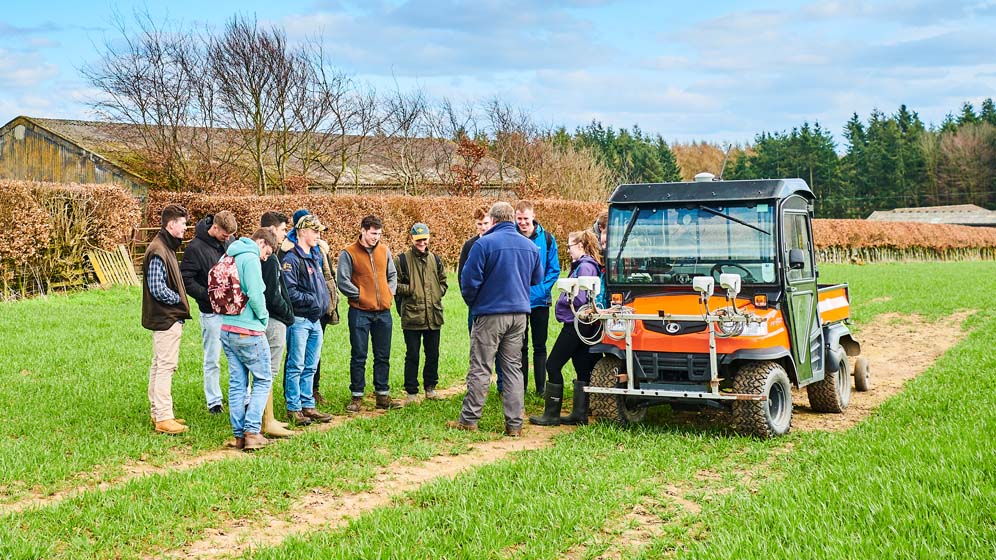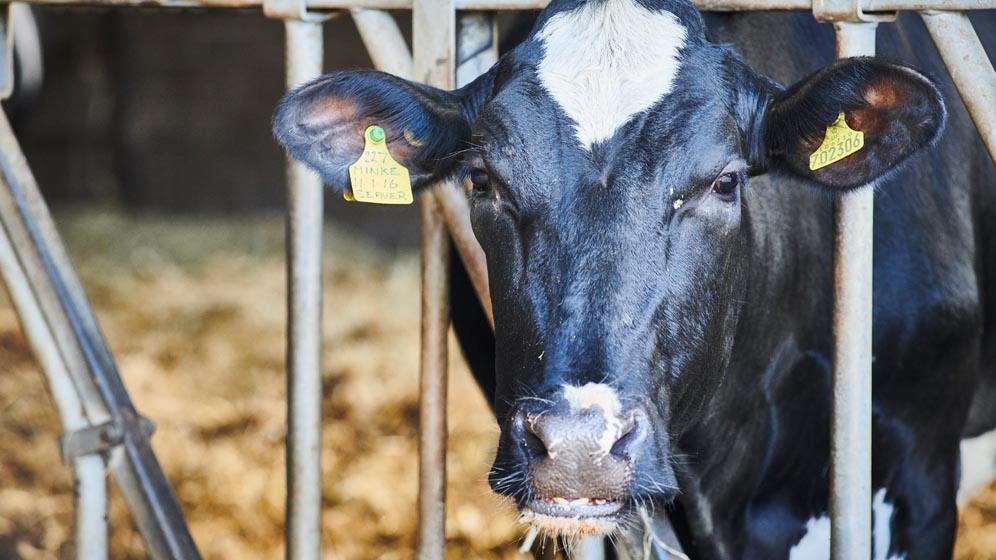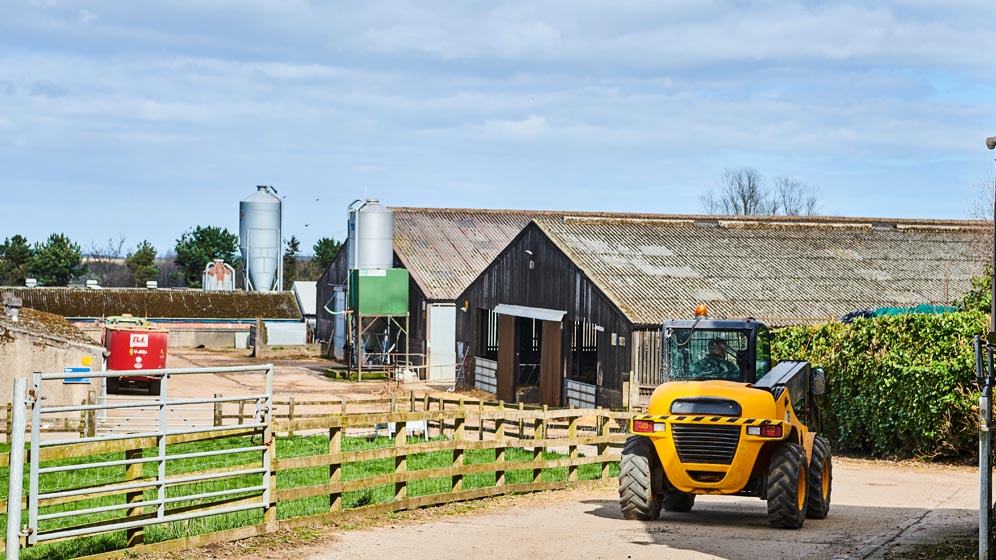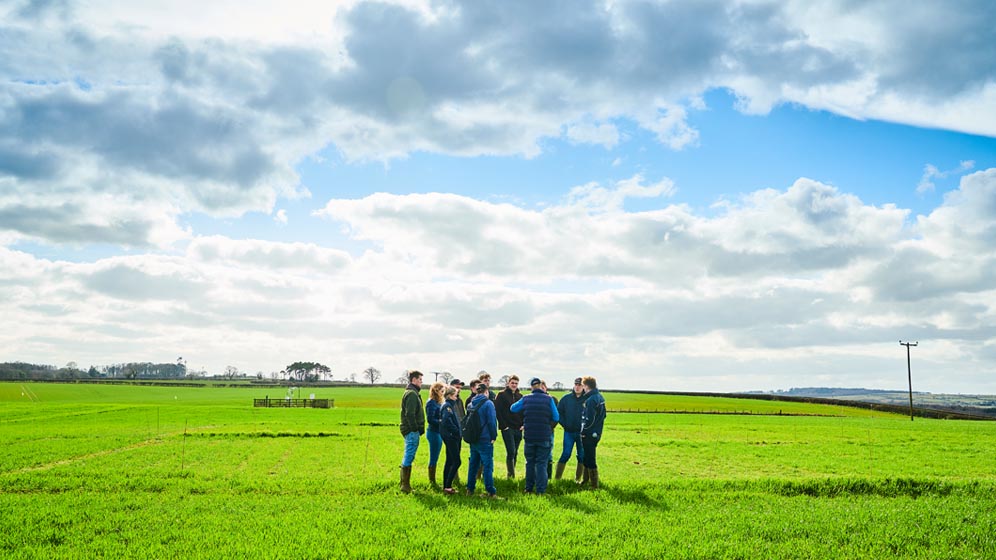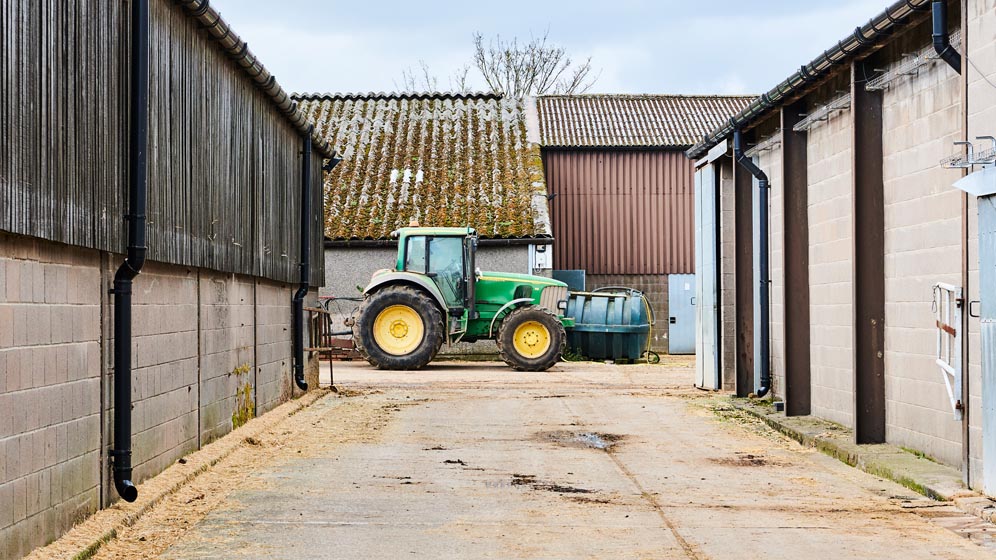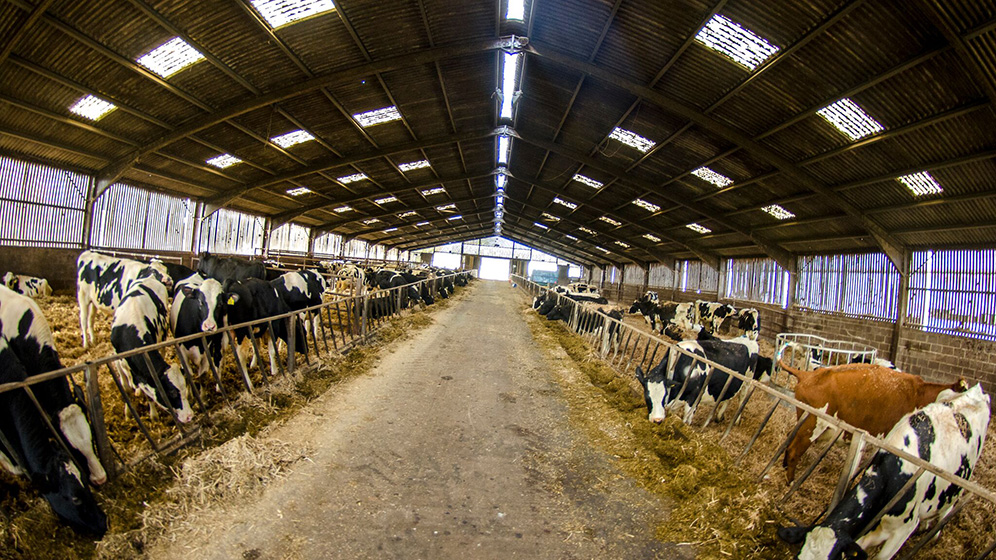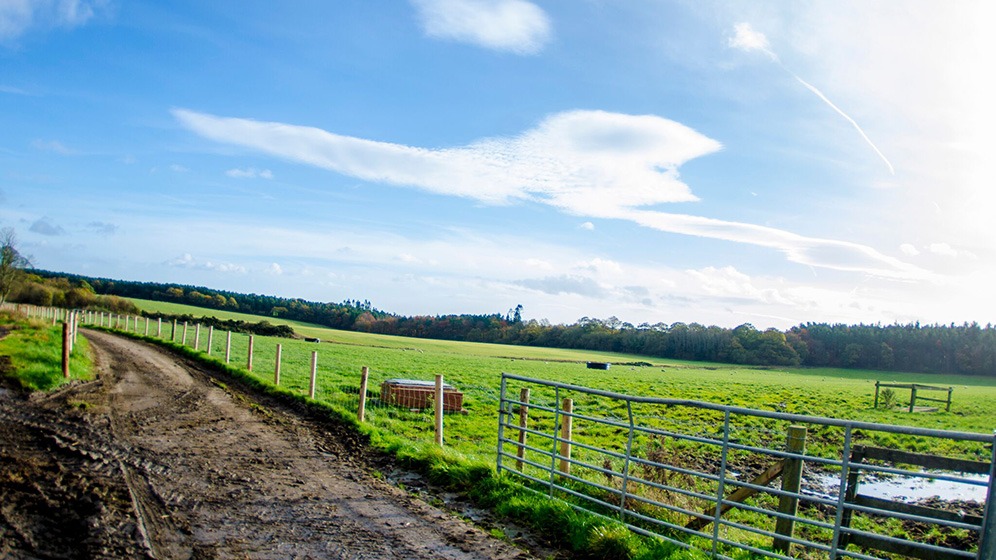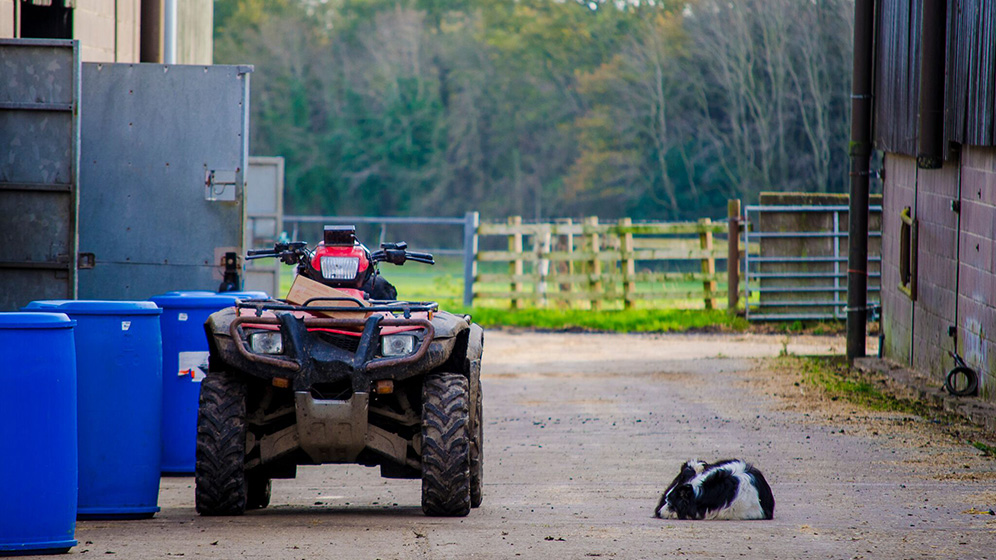Agriculture BSc Honours
- UCAS code: D400
- Full time
- 3 years
Gain specialist knowledge and skills with our Agriculture BSc degree. You'll study modules about farm business management, agronomy, and farm animals. This degree prepares you for a career in this high-tech and rapidly changing sector.
You are currently viewing course information for entry year: 2026
Next start date:
- September 2026
UCAS Institution name and code:
- NEWC / N21
Course overview
Agriculture is at the centre of many of the challenges facing modern society - including climate change, food security and increasing world population.
Agriculture is part of the solution, understand and help tackle these critical issues with an Agriculture degree.
Working alongside students from many intersecting disciplines, our cutting-edge curriculum includes a broad range of topics, including: animal nutrition, plant biology, soil science, nutrition, management, accounting, law and sustainable development.
Since 1891, we’ve led the way in agricultural education. Our outstanding facilities boast two University farms (over 800 hectares), high-profile research platforms, Agritech centres, modern laboratories and computing facilities.
During your studies, you can also spend a year on a work placement or studying abroad.
Your course and study experience - disclaimers and terms and conditions
Please rest assured we make all reasonable efforts to provide you with the programmes, services and facilities described. However, it may be necessary to make changes due to significant disruption, for example in response to Covid-19.
View our Academic experience page, which gives information about your Newcastle University study experience for the academic year 2025-26.
See our terms and conditions and student complaints information, which gives details of circumstances that may lead to changes to programmes, modules or University services.
Quality and ranking
Professional accreditation and recognition
All professional accreditations are reviewed regularly by their professional body.
Modules and learning
Modules
The information below is intended to provide an example of what you will study.
Most degrees are divided into stages. Each stage lasts for one academic year, and you'll complete modules totalling 120 credits by the end of each stage.
Our teaching is informed by research. Course content may change periodically to reflect developments in the discipline, the requirements of external bodies and partners, and student feedback.
Featured module
NES2202 : Sustainable SolutionsYou'll explore the real-world sustainability challenges faced by businesses in our Sustainable Solutions module. You'll see how they connect to the UN’s Sustainable Development goals. Working in teams, you’ll tackle a challenge set by a sponsor company. You'll develop a sustainable solution and pitch your idea, considering social, economic, and environmental impacts.

Optional module availability
Student demand for optional modules may affect availability.
Full details of the modules on offer will be published through the Programme Regulations and Specifications ahead of each academic year. This usually happens in May.
To find out more please see our terms and conditions
You’ll study plant biology, animal science, agri-business economics and more.
We’ll also introduce you to lab work and IT applications. You’ll use these skills to apply statistical techniques to agricultural data.
During our visits to the University farms, you’ll get first-hand insight into where world-leading and field-scale research meet commercial practice.
You'll explore global issues relating to your degree in the context of the UN Sustainable Development goals. We’ll also hone your academic skills to help you transition to University and maximise your success in your degree and beyond.
Modules
| Compulsory Modules | Credits |
|---|---|
| Crop Health | 10 |
| Introduction to Business Management | 10 |
| Agri-Food Supply Chains | 10 |
| Animal Health | 10 |
| Introduction to Animal Physiology | 10 |
| Sustainability in Practice | 20 |
| Academic and Professional Skills | 20 |
| Introduction to Sustainability | 20 |
| Plants, Environment, Agriculture | 10 |
Apply your knowledge to animal and crop husbandry and farm business management. We’ll study animal breeding, arable crop production and agricultural markets.
Further field trips to our farms and other enterprises and industry speakers will help you apply your learning.
Modules
You also take the following compulsory module:
| Compulsory modules | Credits |
|---|---|
| Pollution of Air, Water and Soil | 10 |
In your final year, you can choose to keep a broad agriculture degree or specialise in agronomy, farm animal production or farm business. You’ll also complete your dissertation in an area of interest to you or aligned to your ideal career.
Modules
| Compulsory Modules | Credits |
|---|---|
| Applied Farm Business Management | 20 |
| Dissertation | 30 |
We base these figures and graphs on the most up-to-date information available to us. They are based on the modules chosen by our students in 2024-25.
Teaching time is made up of:
- scheduled learning and teaching activities. These are timetabled activities with a member of staff present.
- structured guided learning. These are activities developed by staff to support engagement with module learning. Students or groups of students undertake these activities without direct staff participation or supervision
Teaching and assessment
Teaching methods
Lectures and laboratory practicals will teach you the scientific principles that underpin agriculture.
Visits to the University farms and other local farming businesses will help you to understand the practical application of the theory you learn.
You'll also complete project work and reports, working as an individual and in groups.
Assessment methods
You'll be assessed through a combination of:
-
Assignments – written or fieldwork
-
Dissertation or research project
-
Essays
-
Examinations – practical or online
-
Group work
-
Practical sessions
-
Projects
Skills and experience
Practical skills
We’ve been a leader in agricultural education since 1891. We have strong links with the local farming community. This gives our students access to a range of farming practices.
Our farm scheme offers opportunities to explore areas of interest. These include:
- regenerative farming
- novel crops
- precision practices
- robotics and automation
- digital monitoring for biodiversity, soil and livestock.
Business skills
We encourage you to take a placement year between Stages 2 and 3. This can be a professional role in the industry or studying abroad. Our study abroad option means you’ll join one of our many global partner universities where teaching is in English.
Working on live consultancy case studies within modules will develop your real business skills
Research skills
To address the problems facing agriculture globally, we conduct research on themes such as:
- ethical and nutritious food
- resource-efficient and resilient production systems
- sustainable landscapes and production systems
- vibrant rural communities and enterprises
You'll also have the opportunity to explore an area of interest in your final year dissertation.
Opportunities
Study abroad
Gain a global perspective, enhance your academic profile and open doors to exciting new experiences by studying abroad for one semester or a full academic year at one of our partner universities overseas. Study abroad usually takes place in stage 3 of your studies and extends your degree by one year.
You'll have the choice to study at a leading international university, including:
- Monash University
- University of Hong Kong
- University of Pittsburgh
You can also opt for short-term global opportunities like summer schools, virtual exchanges or internships that usually take place over the summer months.
Work placement
During your degree you can apply to spend 9 to 12 months on a professional industrial placement, in the UK or abroad. Your work placement is a great opportunity to gain practical experience, acquire key business skills and make industry contacts. You’ll get University support from our dedicated team. Work placements usually take place between Stages 2 and 3 and extend your degree by a year.
Recent Agriculture and Animal Science industrial placements include:
- Agricultural Graduate Sales Trainee with Davidsons Animal Feeds
- Agronomist at Marks and Spencers
- Ruminant Technical Adviser at Carr's Billington
- Placement student at OSI Food Solutions UK
- Placement student at For Farmers
- Placement student at Oaklands Farm Eggs Ltd
Facilities and environment
Facilities
The Agriculture Building is the home of Agriculture and Animal Science, based in the School of Natural and Environmental Sciences, and located on our vibrant, city-centre campus. Here some of our state-of-the-art facilities include laboratories, plant growth incubators and vertical farming units.
During your studies, you'll have access to Newcastle University Farms. NU Farms encompasses mixed animal, arable and biomass operations, with a commercial dairy and beef herd and a planned bed-and-breakfast pig enterprise. The farms are used for commercial, teaching and research purposes where you develop skills relating to data gathering and analysis, soil sampling, animal and plant health, pests and weed identification. At NU Farms we promote innovation to shape policy and support scientific research. We have extensive collaborations including:
- UK Agri-Tech Centre with on-site facilities
- Fera Science (Fera)
- Institute of Agri-Food and Rural Innovation (IAFRI)
- Linking Environment and Farming (LEAF)
With a focus on sustainability, input from industry and research-driven teaching led by top academics we will prepare you for a successful career in agriculture, animal science and related fields.
We have extensive links with other farms, businesses and animal enterprises to broaden and deepen your understanding.
Animal Science students will also be interested in the high tech gait lab; our laboratories for dissections, microscope work etc and the UK's first our mobile dog behaviour research pod.
Support
We take your health and wellbeing seriously and are committed to supporting you throughout your studies so you can fulfil your potential at university. This support includes:
- your degree welcome event where, in small groups, you get to know those on your course
- a personal tutor who is an academic member of staff who can help you with academic and personal issues throughout your degree
- a peer mentor scheme which pairs you with a current student from your course to help you navigate your first year at university
- a staff-student committee, to give you an opportunity to have a say in how your degree works
- support, treatment and guidance on mental and physical health from our wellbeing team
Your future
As a Newcastle University agriculture graduate, you will be held in high regard in the industry and have many career options open to you.
Graduates from agriculture have gone into farm management roles, service and supply industries as well as research, advisory and consultancy work in the public and private sector.
Many have found employment in prestigious national and multinational companies such as:
- Velcourt
- Sentry Farming
- Bidwells
- Andersons
- Strutt and Parker
- Agrovista
- Syngenta
- Brown & Co
- Grays
Industry links
The Sustainable Solutions module at Newcastle University offers you the opportunity to collaborate with industry professionals on projects that address real-world sustainability challenges. This hands-on experience enhances your problem-solving skills and prepares you for successful careers in sustainability-focused roles.
You'll have many opportunities to interact with industry through:
- guest speakers
- visits
- industry networking events
- opportunities to attend conferences
Careers support
Our Careers Service is one of the largest and best in the country, and we have strong links with employers. We provide an extensive range of opportunities to all students through our ncl+ initiative.
Visit our Careers Service website
Recognition of professional qualifications outside of the UK
If you’re studying an accredited degree and thinking about working in Europe after you graduate, the best place to find current information is the UK Government’s guidance on recognition of UK professional qualifications in EU member states. This official resource explains whether your profession is regulated in another country, what steps you need to take, and which organisation you should contact.
Entry requirements
All candidates are considered on an individual basis and we accept a broad range of qualifications.
The entrance requirements and offers below apply to 2026 entry.
| A-Level | |
|---|---|
| International Baccalaureate | |
|---|---|
Other UK and the Republic of Ireland qualifications
Alternative offers at Newcastle
Through one of our contextual or alternative offer routes, you could receive an offer of up to three grades lower than the typical requirements.
Contextual offers
We use certain contextual data from your UCAS form, alongside your application, to consider challenges that you may have faced in your education and the potential effect this may have had on your qualifications. This means you may be eligible to receive a lower contextual offer.
PARTNERS offers
One of the largest and longest support entry routes to university of its kind for students from underrepresented backgrounds. We support applicants from application through to study.
Realising Opportunities offers
A unique programme delivered in collaboration with 10 leading, research-intensive universities in the UK. The programme is open to students in Year 12/first year of college.
Pathways to Newcastle offers
Pathways to Newcastle, our national skills entry route, is available for specific subject areas.
High Performance Athletes
We support promising athletes at the application stage, who compete in regional, national or international levels in their sport.
Qualifications from outside the UK
English Language requirements
Entrance courses (INTO)
International Pathway courses are specialist programmes designed for international students who want to study in the UK. We provide a range of study options for international students in partnership with INTO.
These courses are specifically designed for international students who want to study in the UK and progress onto one of our undergraduate degrees. Our International Study Centre, has a range of study options including:
- International Foundation
- International Year One
- English Language courses
Find out more about International Pathway courses
Admissions policy
This policy applies to all undergraduate and postgraduate admissions at Newcastle University. It is intended to provide information about our admissions policies and procedures to applicants and potential applicants, to their advisors and family members, and to staff of the University.
University Admissions Policy and related policies and procedures
Credit transfer and Recognition of Prior Learning
Recognition of Prior Learning (RPL) can allow you to convert existing relevant university-level knowledge, skills and experience into credits towards a qualification. Find out more about the RPL policy which may apply to this course.
Tuition fees and scholarships
Tuition fees for academic year 2026-2027
The 2026 entry home fees have not yet been confirmed.
| Qualification: BSc Honours | |
|---|---|
|
Home students full time 3 years |
Tuition fees (Year 1)
Not set |
|
International students full time 3 years |
Tuition fees (Year 1)
31,500 |
Year abroad and additional costs
For programmes where you can spend a year on a work placement or studying abroad, you will receive a significant fee reduction for that year.
Some of our degrees involve additional costs which are not covered by your tuition fees.
Scholarships
Find out more about:
Open days and events
You'll have a number of opportunities to meet us throughout the year at our on-campus and virtual open days.
You'll be able to:
- explore our beautiful campus
- find out about our vibrant city
- discover what students think about studying at Newcastle
You'll also have the opportunity to speak to academic staff and find out more about the subjects you're interested in.
Find out about how you can visit Newcastle in person and virtually.
We regularly travel overseas to meet with students interested in studying at Newcastle University. Visit our events calendar to find out when we're visiting your region.
How to apply
Apply through UCAS
To apply for undergraduate study at Newcastle University, you must use the online application system managed by the Universities and Colleges Admissions Service (UCAS). All UK schools and colleges, and a small number of EU and international establishments, are registered with UCAS. You will need:
- the UCAS name and institution codes for Newcastle University (NEWC/N21)
- the UCAS code for the course you want to apply for
- the UCAS 'buzzword' for your school or college
If you are applying independently, or are applying from a school or college which is not registered to manage applications, you will still use the Apply system. You will not need a buzzword.
Apply through UCASApply through an agent
International students often apply to us through an agent. Have a look at our recommended agents and get in touch with them.
Get in touch
By phone
Call us on +44 (0) 191 208 3333 and press option 1. Our opening hours are Monday to Friday 10am until 4pm.
Live chat
Our NCL chatbot might be able to give you an answer straight away. If not, it’ll direct you to someone who can help.
You'll find our NCL chatbot in the bottom right of this page.
Online
Chat to our students
Choosing a university is a big decision. If you've got questions about a particular course, student life or the city of Newcastle, why not chat to our friendly students or graduates!
Book a one-to-one chat
Book a slot with one of our academic staff for a one-to-one chat about your subject of interest, student experience, and more: Book now
Keep updated
We regularly send email updates and extra information about the University.
Receive regular updates by email




